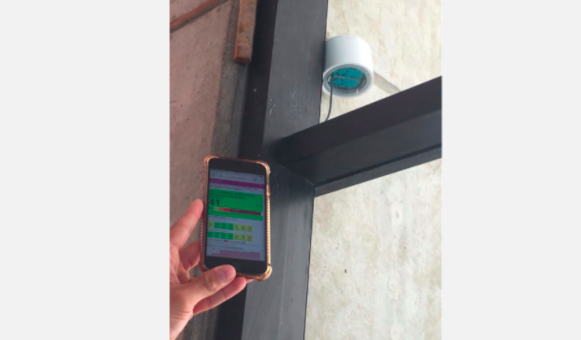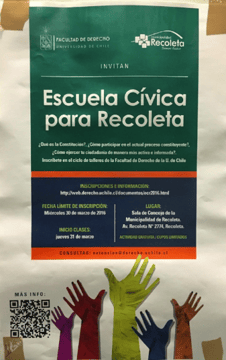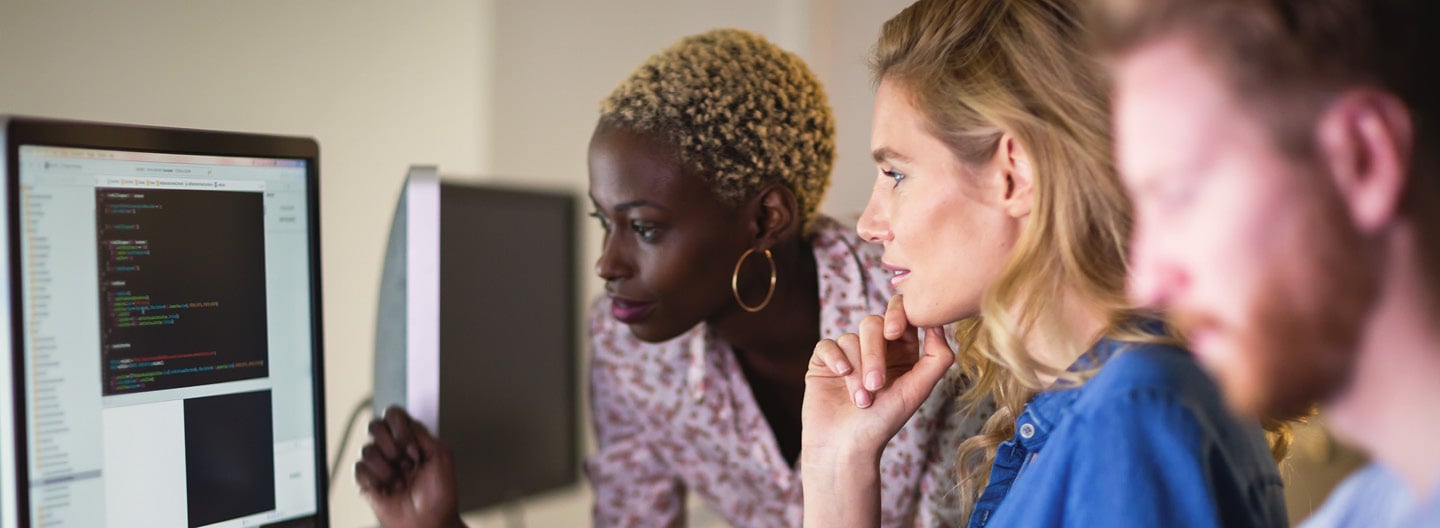Editor's note: This is an updated version of a post that was originally published on the previous TechSoup for Libraries blog.
In April 2018, I had a chance to talk to Oregon librarians at the annual Oregon Public Library Division Dinner, in association with the Oregon Library Association conference. This article is an adapted version of the talk I gave there which is, in turn, an expanded version of Why Libraries are the Best Place for Us to Work.
Who I Am
I work with Caravan Studios, which is a division of TechSoup. At Caravan Studios, we work with people in communities to identify opportunities for technology to make a difference in the issues about which they care the most and then to develop that technology and help measure the impact. There are a lot of places we could do our work: in our own conference rooms, in co-working spaces in cities throughout the world, in coffee shops, like the one where I am writing this now.
What we've found, however, is that the best place for us to work is libraries. Why? Because libraries have librarians, because their mission is about providing access to information, and because anyone can walk through the doors and participate. It makes a difference to us, and it holds us to some of our higher ideals of inclusion, openness, and a real commitment to meeting the needs of all people who live within a community.
Seven Reasons Why Libraries Are Vital to Our Work
1. Libraries Promote Meaningful Engagement
Here's just one example:

I took that photo in a library in Medellín, Colombia. That coffee-cup-sized device you see in mounted in the window is an air quality sensor. The phone screen is showing, in real time, the air quality data. By putting these devices in libraries, the community can see them and can access the info in real time using the libraries' Wi-Fi and their own devices or using the public-access computers at the library.
Most important, however, the library can also provide programming that supports understanding this data, using it in civic engagement, and, by extension, understanding other kinds of open data. You can learn more about this project and let us know if you'd like to participate in How Nonprofits and Libraries Can Use Open Data to Lead to Cleaner Air.
2. Libraries Provide a Place for Communities to Remember
I've become obsessed with memory projects: projects which allow community members to gather all kinds of artifacts to document their own existence. This project, also from Colombia, is a terrific example: Comparte Tu Rollo. This project brings together residents in towns all over Colombia to share photos, document them, scan and upload them, and share them with another, creating a picture of life and lifestyles and peoples that might otherwise be lost. Doing it at the library means that all residents can engage, it means that equipment and Internet access don't have to be a barrier, and it means they can easily access the information that has been uploaded and shared any time the library is open.
3. Libraries Create Opportunities for Leadership
We see this all the time in a project we are collaborating on in Brazil, Conecta Biblioteca. The point of this project, led by the Brazilian organization Recode, is to work with libraries from across the country to work with young people to develop locally relevant community-driven programming to help youth get jobs and access education.
In our first cohort, with more than 92 participating librarians, youth leadership groups have been formed, and those youth have reached out into the community to find out what their peers need, learn what resources are available to them, and then work with the assets at the library to build out programs that support that. Libraries are a place this leadership be fostered. It isn't a grade; it isn't a job: It's a place where youth can make a difference and see that their view of the world, and their future, is meaningful.
4. Libraries Promote Peace
This photo is from Santiago, Chile.

"Education is the vaccine against violence and ignorance." I’ll just leave that right there.
5. Libraries Give Us the Tools to Engage
Also from Santiago, Chile:

This is promoting a civic school: a place that teaches people all the ways they can engage in their community. We see libraries providing those tools in other places: hosting community forums, supporting voter registration efforts, providing election information. This access to civic engagement is important everyplace in the world. In some places, it is more rare than in others.
6. Libraries Give Us the Keys to Culture
This is packed into books, into movies, into music that libraries make available. The main library in Santiago makes art available for checkout, like large paintings, some of which are reproductions of very famous paintings. Imagine what that could be like for discussion at a community group, in a school, or even at a themed dinner party. You might think this doesn't belong on a list that comes from a technology development organization. We believe that the culture in which a product resides helps to give it meaning and context. Working at libraries gives us a chance to get close to that.
7. Libraries Give Us Opportunities for Expression
When we first began working in Brazil, the government was going through a tumultuous time that resided with the impeachment of the president. Libraries provided a space where community members could talk about the impact of that on social issues. And it let us be observers and participants, guided by our colleagues. This place, where people can express themselves and come to see their common interests, can only happen when access — the ability to walk through the door, the work that librarians do to connect people to resources and to keep those resources free and open — is built into the infrastructure of an institution, like it is with libraries.
Fighting for Libraries Everywhere
You are reading this on TechSoup for Libraries. And, like the people I talked with in Oregon, you are likely a librarian. Which means this list is familiar to you. What may be less familiar is the value that it brings an organization like the one with which I work, the extent to which the values help push the team I am a part of, to be more inclusive, more open, and to fight for the libraries everywhere.
About the Author
Marnie Webb is the CEO of Caravan Studios, a mobile apps for good project of TechSoup. She also serves as the Chief Community Impact Officer for TechSoup. Caravan Studios' collaborative approach uses a theory of technology intervention to allow communities to respond to the issues they care about most. Caravan Studios has used this methodology to build tools to more quickly find shelter for human trafficking and domestic violence survivors, support migrant workers in the Persian Gulf, and deploy volunteers in times of disaster. She has been named one of the Top 10 Silicon Valley influencers by the San Jose Mercury News.






